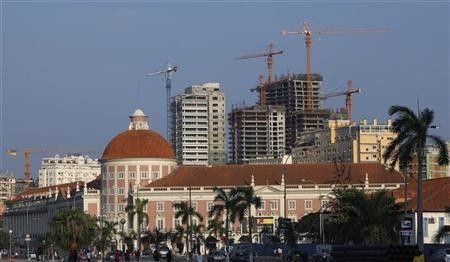Angola To Boost Private Enterprise, Invest In Electricity, To Avoid Nigeria's Fate

The oil-rich southern African country of Angola is calling for private enterprise to get involved in its plan to invest $23 billion in an electricity system over the next four years, in a bid to encourage economic diversification -- lest it end up like Nigeria, the continent's top oil producer whose hydrocarbon industry is plagued by serious problems. Within the next year or two, Angola could actually edge out Nigeria in terms of oil production. It has ambitions to produce at least 2 million barrels per day (bpd) by 2015, reported Bloomberg. This year, output has averaged about 1.75 million bpd, while reserves are estimated at 12.78 billion barrels.
Oil accounts for 95 percent of foreign exchange revenues -- exactly as in Nigeria. It also makes up 45 percent of Angola's GDP, while Nigerian GDP is dominated by agriculture instead. To avoid relying too heavily on an industry that tends to depend so heavily on foreign firms, Angola is making a concerted effort to beef up its energy infrastructure -- with help from private companies on domestic soil.
After a devastating civil war that lasted nearly three decades until 2002, Angola has been working to rebuild. Its electrical infrastructure is shoddy, and less than one-third of the population of 21 million has access to the grid. But demand is expected to rise precipitously -- already, Angolans and international visitors are flocking to the capital city of Luanda, making it the most expensive city for expats in the whole of Africa.
As more and more citizens reap the benefits of this influx of oil wealth, electricity -- or lack thereof -- will become paramount. A better energy system, in turn, will enable all sectors -- not just oil -- to play a role in Angola's growth. "Our energy policy has to be a lever for the economy, creating conditions for new companies in various sectors, jobs and wealth for the country and individuals," said Joaquim Ventura, secretary of state for Energy, according to Reuters.
But Ventura warned that Angola has to change some internal policies with respect to energy – for example, the state will phase out energy price subsidies that cost the government some $720 million annually.
"The tariffs have to rise, the subsidies are not sustainable,” Jose de Oliveira, an energy expert at Luanda's Catholic University, told Reuters. “Production and consumption rises and so does the weight of the subsidies, a vicious circle."
© Copyright IBTimes 2025. All rights reserved.






















